The was originally posted on the central GTW site a couple of years back, luckily for Frank I archive things obsessively and thus still had all the files and details on my computer. Enjoy!
The story of Berserker Works is similar to many software houses in the 1980s. Set up as a small company with only one or two people at the helm, it released several games over the years before running out of steam in the late 1980s, having never managed to secure the major distribution needed to gain a profitable foothold in the industry.
The difference with Berserker Works is that it was created and run by best-selling science fiction and fantasy author, Fred Saberhagen, who by the 1980s had been writing books for over twenty years. He had seen the rising interest in computer games and believed that it would only grow, and felt it would be a good idea to create a story that would make a great computer game. What he came up with, the Book of Swords, was too complex for the technology of the time, but Berserker Works (named after his science fiction series based around a race of death machines known as the Berserkers) was created and he pressed ahead with getting programmers involved to help him realise various concepts he and his wife, Joan, came up with.
The fact the company was created way back in 1982 shows how visionary Fred was when he did this. The C64 was only released in 1982, making games like Berserker Raids among the very first released on the system. Other systems supported by Berserker Works were the Atari 400 (and 800), the IBM-PC (and PC-jr.) and the Apple-II, all of which came around the late 1970s. Fred and Joan’s lack of knowledge of the limitations of the computer systems of this time ironically served to their advantage as they took their ideas to the programmers who thought of innovative ways to incorporate them into the games. This collaboration led to bold attempts at interactive and non-interactive fictions and the list of games they released contains a wide variety of games including futuristic sport, war strategy, interactive fictions and even an 19th century socialite game in Pride and Prejudice.
Had the rest of the industry been as far-sighted as Fred and Joan, maybe the company could have secured a long-term distribution deal that would have given the company the profitability and security needed to survive. Ultimately the company ran until 1989, with the games distributed by Freds publisher, Baen Books. The head of the company, Jim Baen, also had input on the games and came up with many ideas of his own. Sadly not all these ideas resulted in completed games and there were at least five or six unfinished games by the time Berserker Works folded in 1989. They did manage to release seven programmes though, detailed further below. Due to the limited distribution at the time, these games are now hard to find, to the point where even hardcore fans of Fred Saberhagen have never played most of them.
Although Baen Books provided distribution, they struggled to find a wide enough audience. The publisher at Baen Books today, Toni Weisskopf, says that although Baen Books did produce several games, computer-use books and even a computer programme by Jim Baen himself, their distribution relied on trying to sell the software into books stores, as they were primarily a book publisher and there werent dedicated software stores like there are today. Eventually complications arose with the distribution and even this avenue was closed to the Saberhagens. As such they decided to close the company, although in correspondence with Fred and Joan they have said that they consider the company dormant and would consider re-opening it were the situation right. Certainly computer technology has caught up with their ideas from the early 1980s and with the internet a mass audience can be reached relatively cheaply.
Today both Fred and Joan are still active, at least in the writing world. Fred released Ardneh’s Sword in 2006 and Rogue Berserker in 2005 while Joan is working on the follow-up to her debut novel, a fictionalised biography of the first woman to get an advanced degree in maths, Sonia Kovalevskia. It would be appropriate if they once more entered the world of computer gaming, as since their time in computer game publishing, there have been more and more examples of people outside the gaming industry taking a serious interest in utilising the medium. Only recently it was announced Steven Spielberg was going to work with EA to produce three games, and in the 1990s Raymond E. Feist worked closely with Sierra to create Betrayal At Krondor, which was based in his fantasy world, Midkemia. It would be fitting if the person who was probably the first author to get involved with producing computer games became involved once more.
Berserker Works: The Games
1. Berserker Raids 1982
Released on: C64, Apple II, IBM-PC/Jr. and Atari 400/800.
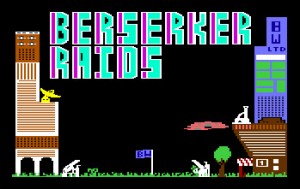
A strategy game set in the Berserker universe. Lloyd Johnson, who initially wrote it as a two-player space war game called Space Empire, created it. However, he wanted to make a solitaire version, and decided that Fred’s Berserkers would make the perfect computer-controlled enemy. He got in touch with Fred about it and when Berserker Works was created, Fred asked Lloyd to collaborate with him on some computer games, and Berserker Raids was the first one. The released version had both one and two player versions.
2. Wizard War
Released on: C64, IBM-PC
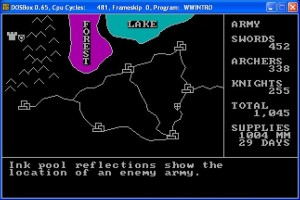
Wizard War is a fantasy strategy game, designed and created by Lloyd Johnson with additional input from Jim Baen. The game was released with an exclusive story written by Fred Saberhagen based on the game. You controlled an army of swordsmen, archers and knights and travelled around a map fighting armies of ogres. Both armies had a single wizard whose spells acted as a sort of artillery.
3. Pride and Prejudice
Released on: C64, Apple-II, IBM-PC/Jr.
Designed by another best-selling science fiction author, Walter Jon Williams, Pride and Prejudice was billed as a game of 19th century romance and today is possibly the most sought after game from the Berserker Works stable. It was for up to six players, with each one playing a poor but virtuous maiden from the Regency period. You have one season in the London season to attract a bachelor and get engaged, with the most eligible naturally being Mr. Darcy. It was aimed at a female market, which obviously existed only in the smallest of numbers back in the 1980s, but according to Williams himself; the most ruthless players were men!
4. Wings Out of Shadow
Released on: Apple-II, IBM-PC/Jr.
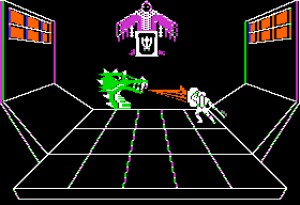
The only game to be successfully publicly preserved today, Wings Out of Shadow was based on a short story written by Fred Saberhagen. An emulated image can be bought from www.newmediareader.com on a CD with other New Media Reader items. The game is described as a mix of strategy and arcade action. It came with an exclusive Berserker story written by Fred Saberhagen, who even wrote the in-game text.
5. Star Ball
Released on: Apple II, C64
Star Ball is described as a 3D four-walled racquetball game, and was created and programmed by Dale Koehler, with Berserker Works providing the production and distribution. It was the only purely arcade game released by Berserker Works.
6. Sign of the Wolf
Released on: C64
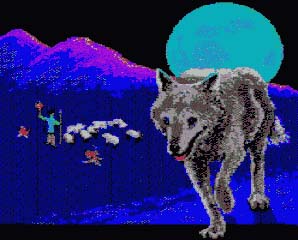
A form of illustrated non-interactive fiction, Sign of the Wolf took the form of an electronic book and was based on a Fred Saberhagen short story. You could move from chapter to chapter and bookmark your favourite pages. The story can be viewed online at http://www.berserker.com/story-wolfcover.htm complete with the original artwork by Eddie Johnson.
7. Electric Dragon
Released on: Mac (512k), IBM-PC
Electric Dragon was another program that was produced and distributed by Berserker Works. Electric Dragon is the authorised implementation of the The I Ching/The Book of Changes. Fred and Joan never met the person who did this, and had even less input on it than they did with Star ball, where they made an occasional comment.
Berserker Works: The Games That Weren’t
- Empire of the East by Lloyd Johnson and based on Freds books of the same name. This game didn’t make it past the concept stage.
- Carriers by Walter Jon Williams, who describes it as thus: a game of the Pacific War. If this had actually been published, it would have been the first hidden-movement carrier game on computer. If this is the naval warfare game to which Lloyd Johnson has referred in correspondence, then several screens of this game exist on a disk in his attic!
- Deterrence – Another game by Walter Jon Williams, who describes the game as: a game of the Cold War. Jim Baen suggested the topic. The object was to deter war, not to start one, so if nuclear war occurred, both sides were losers. Lloyd Johnson has also commented on this game, saying that it would have been difficult to implement on the machines that existed back in the 1980s.
- Privateers and Gentlemen – The third unreleased/unfinished game by Walter Jon Williams describes it as “a computerized version of my rules for Age of Sail miniatures.”
- Swords – Based on Fred Saberhagens novels of the same name, Swords was apparently initially devised as a computer game, but the technology simply didnt exist at the time to produce a game worthy of the story. There were a few working screens made at the time, however and lots of planning and notes were made. Mike Westerfield, the programmer, may yet uncover some disks containing artwork and code.
- Animal Lover – Based on Stephen R. Donaldson’s short story, a few scenes of the story were actually finished, including a shot of a torchlight moving around a laboratory looking for clues, which Fred and Joan felt was particularly innovative at the time.
- Aftermath/Nuke Rat – Based on Gordon Dickson’s short story, Nuke Rat never made it past the planning stage, although again notes were made. This game, as well as Swords, Animal Lover and possibly Empire of the East, were conceived as interactive fiction, which Fred and Joan felt was the most fun. These games would have action sections that the player played through to progress the story. It is a real shame these projects weren’t finished, as experimentation with the genre of games, as such an early stage in their development as a medium, would have been truly revolutionary and not far removed from the 1990’s RPG mentioned earlier, Betrayal at Krondor, which took the form of a book that the player played through, with the introduction to each chapter shown through words and short film footage, before the player played through to the next chapter.
Lloyd Johnson: The Games That Werent
Lloyd Johnson, who programmed Wizard War and Berserker Raids, made several computer games before teaming up with Fred Saberhagen, and also started work on several more during his work with Fred. Today Lloyd works for Boeing. The unreleased versions or unfinished products are detailed below:
- Space Maze v.1 – Space Maze was a game Lloyd programmed on a DEC LSI-11 (!) and was published in Creative Computing Magazine in January 1979. The released version was severely edited down from the original, unreleased version, which contained enemy ships instead of space mines.
- Tank Duel – In the July 1981 issue of Creative Computing Magazine, Lloyd released Paint Duel, a battleships-esque game where the player and his opponent lobbed cans of paint at each other on an 8×8 board. The forerunner to this game, however, was Tank Duel, essentially the same game but with, you guessed it, tanks. It was changed to Paint Duel after some advice from the editor of the magazine, which said that too many games were based on wars.
- Rivets – Based on the Steve Jackson board game of the same name, Rivets was going to be an official conversion, based on a game Lloyd had written called Robot Wars that he had released himself. Robot Wars was going to be renamed Rivets and a royalty paid to Steve Jackson games, but the project never materialised.
- Robot Colony – If finished it could have ended up under the Berserker Works label, Robot Colony is described by Lloyd as not a game in the normal sense. The player would basically watch as a race of robots scavenged around a warehouse salvaging parts to help build themselves. However, mutations would occur with different characteristics, the aim being to prove Darwin’s theory of Survival of the Fittest. Sadly Lloyd could never get it to work properly and the game ended up on the unreleased pile.
- Three Deck Spaceship – Another game that could have been released under the Berserker Works label, this game has no real title, so I have called it Three Deck Spaceship based on Lloyds description. The concept was that you commanded a spaceship and a crew of around half a dozen men. Your ship would be invaded and you, commanding at the bridge, would send men (with different characteristics and weapons) to deal with the threat. Progress was stalled and eventually halted due to problems with getting the men to go from one room to the next efficiently. According to Lloyd, the memory needed to produce such an algorithm at the time would have been staggering. As such the game remained unreleased.
Credits and Thanks
Pictures for several of the games and the Berserker Raids cover were taken from Jason Finleys excellent Official Fred Saberhagen Fansite www.berserkerfan.org
Walter Jon Williams provided valuable information on several unreleased games as well as Pride and Prejudice. He is a prolific author and can be found online at www.walterjonwilliams.net
Thanks also go to Lloyd Johnson, who provided a plethora of information and may even manage to provide some shots of several unreleased games!
Thanks also to Baen Books publisher, Toni Weisskopf, who provided as much information on the era as possible.
Further thanks to Mike Westerfield, who provided information on Swords and may yet discover some precious artwork containing disks!
The largest thanks of all go to Fred and Joan Saberhagen, who kindly answered all my questions, (even the boring ones!) and without whom none of this would have been possible. They can be found online at www.berserker.org and www.joanspicci.com
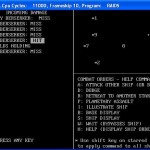
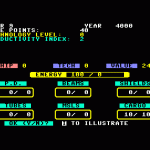
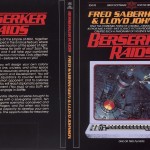
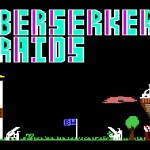

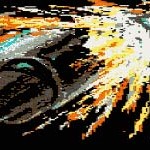
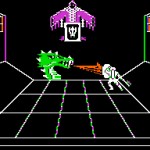
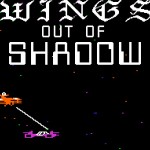
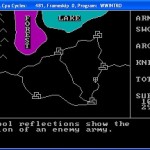
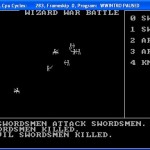

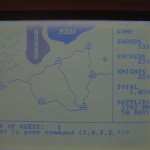

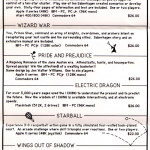
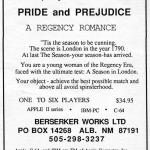

Berserker Raids and Wizard War are now both preserved on the Internet Archive.
Hi, I was wondering if anyone would know the name of the Battleship game that we played in the 70’s on the IBM PC Junior, I am trying to locate it for the modern day computer or if someone could give me the name and who produced the game, it was good and it wasn’t complicated like the battleship games of today. Thanks
No idea I’m afraid but could it be one of these games?
http://www.theoldcomputer.com/roms/index.php?folder=IBM/PCjr-4860/Games/Cartridges
What was it called? You might want to contact a few sites to see if they know it, I don’t really know the IBM-PCJR to be honest.
Good luck!